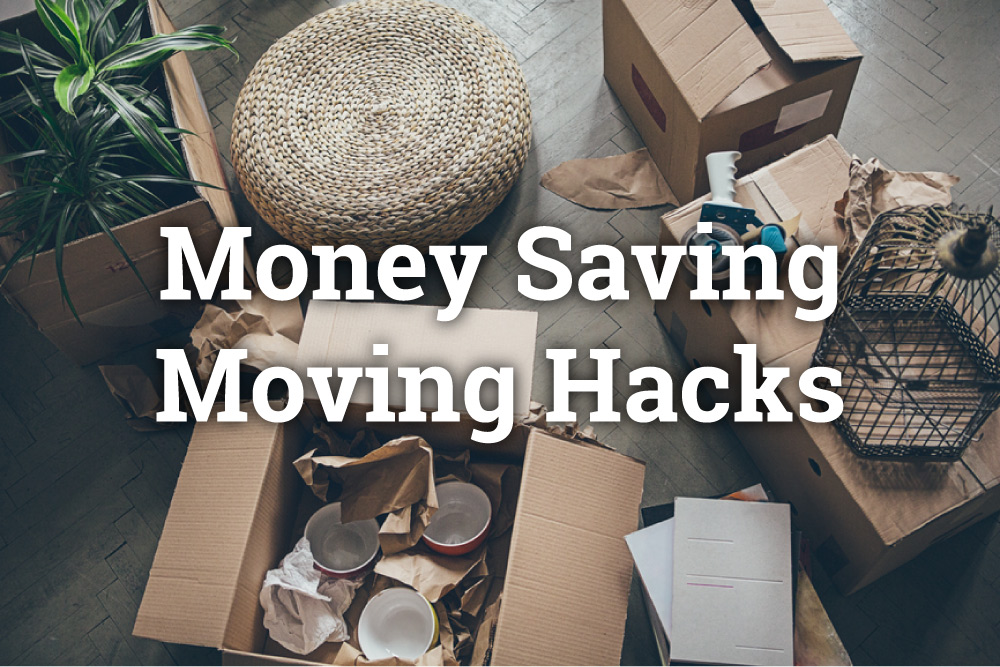No one ever said moving was cheap — between security deposits (for renters), down payments (for buyers), and insurance for the move and your new place (for both), costs can stack up before you even make your first monthly payment.
One more item on your budget? The move itself. According to the American Moving & Storage Association, an in-state move averages $1,170, while relocating to another state entirely can average as much as $5,630.
Needless to say: cutting down on moving costs is always a good you know what. Here are a few hacks to do just that:
1. Don’t schlep unwanted stuff
Something about a new home brings on the urge to fill it up with stuff — even if we don’t plan to keep it for long after we get there. (I’m not sure where this instinct comes from, but I’m guilty of keeping a busted couch I then had to bribe a friend to help me discard shortly after moving.)
Prepping to pack your worldly possessions — one by one, with your bare hands — is an opportune time to assess what makes the move with you or not. Audit your stuff early on and host a yard sale or sell unwanted items to a consignment shop. You can use the proceeds to fund your postmove pizza party.
Need some minimalist inspiration? Check out Marie Kondo’s The Life-Changing Magic of Tidying Up. The KonMari method will not only slash your moving costs but also make shopping for new home goods feel a lot more purposeful.
2. Get your friends to help (and “pay” them accordingly)
Lugging your buddy’s stuff from one place to another is not fun. No amount of beer-fueled bribery will change that fact. (This shouldn’t discourage you from buying end-of-move beers for those who helped you; cold brews are a bonus, though, not a payment.)
A good rule of thumb is to repay them with an equally significant time or skill commitment. For example, scheduling an afternoon to hang shelves at their place, or baby-sitting their kids or pets. Make a trade and make it fair.
3. Don’t buy general moving supplies
Raid the office copy room for packing peanuts. Head to your current building’s recycle bins for old newspapers. And hit up your local grocery/liquor stores for boxes.
There’s no point paying two bucks (or more) per container of materials that were born and destined to be thrown out the next day.
4. Pack everything (like everything, for real) before moving day
Moving trucks and labor are generally charged by the time spent from start (the time the truck doors pop open or you drive off the rental lot) to finish (the time the last box is unloaded or the rental truck is returned).
Maximize time and money by boxing and labeling everything ahead of your big day, rather than scrambling midmove or having the movers do any unnecessary tasks.
Lots of lightweight, unwieldy items (like floor lamps and furniture cushions) equal lots of small, meaningless trips back and forth. Throwing everything into a tear-prone trash bag at the last possible second is another recipe for disaster. Make a plan for these awkward items in advance.
5. Call in the pros, but only when you need them
If you have access to your new digs before you need to vacate your old one, it’s always smart to shuttle items (especially those lightweight but oddly shaped ones mentioned above) over sooner rather than later.
Some items, such as specialty electronics or large furniture, are best left to the pros. Services such as 2 Men and a Truck generally charge clients per person per hour of service.
Hiring a few moving pros for a short time is often the cheapest option for average jobs (to tackle, say, a few heavy-lift appliances or pieces of furniture).
But there’s nothing worse than paying a professional mover, the kind strapped into a supportive moving belt, to carry your fully extended Swiffer down a flight of stairs at the full hourly rate.
Do you have any money-saving moving tricks? Share your tips and hacks below.


